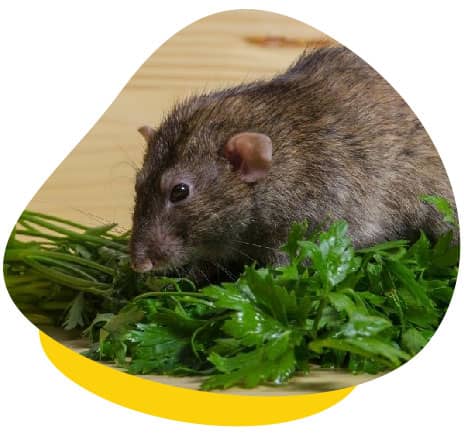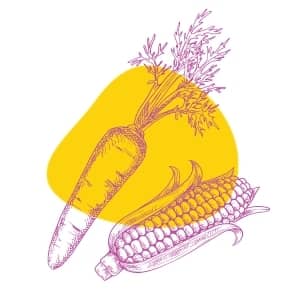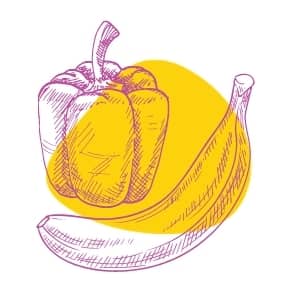Proper nutrition is very important in rats and can help prevent against multiple diseases such as heart disease, liver disease, and tumour formation.
As rats are known to be very selective in their eating habits, it is essential that young rats are offered a range of foods to start developing good habits. Rats have evolved a dietary strategy of an opportunistic omnivore, which means they will select foods high in fats and protein in case of poor food availability in the future.
Pet rats do not have this problem of varying food availability, so many pet rats develop obesity by the age of 12 months. Given this, it is crucial that good eating habits are encouraged from a young age. By offering a range of food, particularly vegetables, to juvenile rats, you can help avoid selective appetites in mature rats.
As a general guide, your rat should be offered a bowl of fresh vegetables twice a day, once in the morning and once at night. Alongside this, a tablespoon of high-quality rat pellets should be offered daily for a healthy diet.
Treats such as cooked meat, egg, sugary vegetables, and fruit should only be given sparingly; a pinch of each 1-3 times per week is plenty for these little guys!
Below is a rough guide of foods that are safe to give your rat:


Everyday Vegetables:
Asian greens, rocket, broccoli, cauliflower, kale, collard greens, herbs (such as basil, coriander, fennel, mint, parsley, etc.), asparagus, celery leaves, clover, dandelion leaves, spinach, savoy and spring cabbage, sugar snap peas.
Vegetables to Offer in Moderation:
Carrot, beetroot (leaves and vegetables), legumes (boiled), chicory, cress, leek, okra, radish, corn, chard.


Fruits in Moderation:
Capsicum, zucchini, pumpkin, squash, banana, berries, apple, pear, tomato, cucumber, melon, kiwi, fresh papaya, pear, watermelon.
Animal Proteins in Moderation:
Boiled egg, boiled chicken, cooked lean red meat (steak, pork, lamb, etc.).


Treats:
Plain popcorn, dry oatmeal, whole wheat pasta.
Do NOT Feed:
Seeds, lactose, chocolate, avocado, garlic, onion, coffee, tea, alcohol, toxic plants (in general, plants toxic to dogs and cats should not be offered to rats).

It is a common misconception that all rats should have free access to pellets. Unfortunately, while this can work well for some rats, in others it can lead to obesity in rats at a young age and is a known contributing factor in respiratory disease and certain tumour formation.
Ideally, your rat should be offered no more than 1-2 tablespoons a day, split over two meals (morning and evening). Fresh water should always be made available.
For more information on the best nutrition for your pet rat, contact your local Unusual Pet Vets team or learn more about our rat veterinary services.

